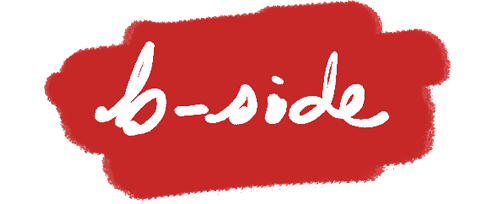This week’s newsletter from LOBSTER, titled “Becoming,” has something that I’ve been thinking about for a while.
Myamoto Yuto, a co-author of the newsletter, realized something about himself upon being asked by his friends: “what’s your vision?”
「これを成し遂げたい」とか「いついつまでにこういうことをしたい」という思いがないのは、もともと先の計画を立てるのが得意でない性格なことに加えて、自分が「する」ことよりも、「なる」ことのほうに興味があるからだろう。
The reason I don’t have an idea of “I want to accomplish this” or “I want to do this by when” is because, in addition to the fact that I’m not naturally good at planning ahead, I’m more interested in “becoming” than “doing”.
At first, I thought he meant that he’s more interested in what he’s becoming (「なる」こと) than what he’s doing (「する」こと). Sounded like the classic struggle between goal vs. process. But then I realized that I was wrong:
ぼくの好きな話に西村佳哲さんの「一緒に冒険に『なる』」というものがあって、西村さんは自身の仕事を振り返って、友人や知り合いからもらった無茶振りのような相談から生まれた物事のほうが、「結果的に、自分が考えて『した』ことよりよほど大きなエポックに至っている事実がある」と書いている。
One of my favorite stories is “Becoming an Adventure” by Nishimura Yoshiaki, in which he writes that the things that came out of the reckless advice he received from his friends and acquaintances ended up being much bigger epochs than the things he did.
And then, he quotes the Dutch architect Rem Koolhaas:
「建築家として、常に私は自分が何を建てたいかを考えることを拒否してきました」と言っていた。えっ、あのコールハースも「自分が何を建てたいか」を考えてないの!? コールハースいわく「本当に面白いことは、建物を建てたい誰かと建築家との間で起こります」とのことで、すべての仕事が人と人の間で行われることを考えれば、建築に限らず世の中に存在する仕事や作品の多くも、実は誰かの「した」ことより、「なった」ことや「おきた」ことでできているのかもしれない、と思ったりする。
He said, “As an architect, I’ve always refused to think about what I wanted to build.” What? That Koolhaas didn’t even think about what he wanted to build!? He said: “the really interesting things happen between the person who want the building built and the architect”. If you consider the fact that all work is done between people, what he said doesn’t just apply to architecture, but applies to many professions and works in the world, which might not be the result of what someone else “did,” but rather what “became” or “happened”.
The architect pointed out something profound about the nature of serendipity, that the really interesting stuff comes out of the interaction between people, and that’s something you cannot control and “think to do.” At best, you can only foster, like you do with a garden, hoping the flowers will turn out a certain way, which are mostly out of your control.
As Miyamoto pointed out, many things in this world are indeed born this way: they just “happened” and “became.,” rather than being done by will. He goes on to say:
人は思っている以上に、自分が考えてすることよりも関係性や流れのなかで生きているんじゃないかな。…もちろん、強い意志やビジョンをもっているのは素晴らしいことだし、そういう人がビジョナリーと呼ばれる人になっていくのだろう。でも、みんながみんなビジョナリーにならなくたって、「なった」ことや「おきた」ことの連続でも世の中に素晴らしい仕事は生まれていく。
I think, to a larger degree than they think, people live in relationships and flow more than they do in will…Of course, it’s great to have a strong will and vision, and that person will become what we call a visionary. But even if not everyone becomes a visionary, the things that “became” or “happened” will continue to give birth to wonderful work.
Silicon Valley is obsessed with visionaries and entrepreneurs who have the will to bend the world. I was too struggling with this implicit expectation, that I too should be aiming to change the world, that this is the only way to achieve something of value, or perhaps, make your life worthwhile. It was suffocating, but I didn’t know why. I only knew instinctively that this wasn’t quite me, and I kept searching for something different.
Nishimura wrote:
西洋的な価値観では個人の意志が尊重される。自己啓発書もコーチングのたぐいも、まず意志を確認する。「やりたいことは?」とか「あなたの使命は?」と訊いてくるのだけど、それらはいったいどれくらい重要なんだろうか。
In Western values, the individual’s will is respected. In both self-help books and the coaching scene, the first step is to identify the will. “What do you want to do?” Or, “What’s your mission?” But I ask, how important are those things?
Or, to put it in another way: how many people decided what they wanted to do with their life early on and just willed their way into that exact goal?
This past year and half of various circumstances have given me a lot of space for introspection and questioning. Why is it that the image of an infallible man of will and vision the only way to success in life? Why do we collectively downplay the extremely significant role of serendipity in our lives? Is this just what people wish to interpret how the world works?
The oversimplification of cause and effect, and the predictable impact of a man’s will are extremely alluring realities that just aren’t. The sooner I accept that I too am just another duck in the flowing river of history, the sooner I can gain some peace. And with this peace, I can align and guide myself with the currents, and stop trying to fight against them.
A lot of times, we really do find awesome things somewhere between “becoming” and “happening”. In happening, you do. In doing, you become.
Where my introspection arrived at, but much better described in the resonating words from Miyamoto, is:
相変わらず立派なビジョンはもっていないけれど、フリーランスとしてひとつ心がけているのは、チャンスが巡ってきたときにパッと飛びつける身軽さを常にもっていたいということ。優れたサーファーが決して大事な波を逃さないように、身軽さを活かしていい波に乗りたい。
I still don’t have a great vision, but one thing I try to do as a freelancer is to hold a lightweight state of mind that is able to jump on the wave when the opportunity arises. A good surfer never misses an important wave, so I want to use my lightness to ride a good wave.
I can’t force everything and everybody around me to be a certain way, but I can be fully prepared to ride the waves of opportunity. Be agile in mind and body, and flow in becomings and happenings.
